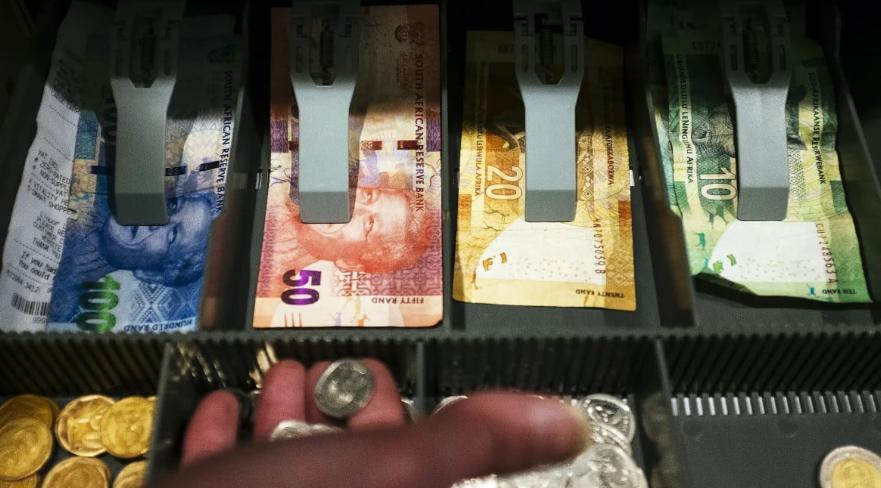Africa-Press – South-Africa. South Africa’s informal economy is estimated to be as big as R900 billion per year—a massive economic engine powered by hundreds of businesses and accounting for thousands of jobs.
But even as the formal market moves towards digital payments and transacting with newer technologies, informal traders and customers keep hard cash on hand, resisting the transition.
This is one of the key findings in Standard Bank’s inaugural Informal Township Research Report, which tries to capture the workings of this hidden economy and how it operates.
The research marks a significant step towards crossing the barrier between South Africa’s formal and informal markets.
With the country’s formal markets being quite developed and struggling to find growth in South Africa’s stagnant economy, banking groups are placing greater focus on the “underserved” informal economy.
The informal sector is characterised by many micro to medium businesses that operate outside of formal regulatory frameworks—often dealing in cash and outside the law.
On the one hand, this brings the benefit of not having to comply with formal processes like VAT registration, labour regulations and tax compliance.
However, it also makes it nearly impossible for budding enterprises to secure capital funds and loans, as well as the necessary tools to grow.
According to Standard Bank, despite these constraints, the township informal economy is still a critical component of South Africa’s overall GDP and employment landscape.
Estimated at R900 billion, the informal market makes up about 12.3% of total gross national product, while accounting for nearly 19.5% of total employment (Stats SA data).
Some experts, such as former Capitec CEO Gerrie Fourie, have posited that these values are understated, with the employment and GDP contributions being much higher than formal systems can track.
Regardless, Standard Bank has sought to find out more about the market through its research survey.
The survey was conducted across Gauteng, KwaZulu-Natal, Western Cape, Limpopo and North West, and covered township enterprises with annual turnovers ranging from R100,000 to R50 million.
The group found that almost 80% of surveyed businesses are unregistered, excluding them from finance and formal opportunities.
Entrepreneurs often face up to 20 similar businesses per community, pointing to heightened competition and very tight margins.
Fewer than 9% have access to bank loans, with most relying on personal savings or family support. 49% of businesses operate from homes or garages, with only 11% in commercial premises.
Cash is still king
Notably, cash remains dominant. However, the bank found that a majority of businesses prefer EFT or bank transfers, indicating readiness for more formal methods of transacting.
Standard Bank noted that cash remains the primary transaction method in the informal economy, driven by customer preference and limited digital literacy.
While higher-income businesses showed a preference for bank transfers, customers prefer to transact with cash.
“This is a significant factor, as these businesses are typically led by customers when it comes to transaction methods,” Standard Bank said.
While swiping, tapping, and mobile money are preferred by some, cash continues to dominate.
The use of formal banking services is often limited by high fees, lack of transparency, and past negative experiences, it noted.
The high cost of point-of-service devices and perceived safety risks with tap-and-go or NFT technology are also barriers to adoption.
“Many SMEs maintain multiple accounts, typically one for personal use and another for business, though these are not always formal business accounts,” the banking group said.
Despite improvements in digital banking, many SMEs still prefer cash due to convenience and control. These SMEs primarily use cash for daily living expenses, such as transport, groceries, and school lunches.
While cash is widely used for business transactions, businesses themselves indicate a preference for EFT/Bank transfers.
Mobile money and bank transfers are also used, particularly for stock purchases and rent payments.
Standard Bank’s findings contrast sharply with plans and intentions by banking groups and the South African Reserve Bank (SARB) to reduce the country’s dependence on cash.
The SARB, through its 50%-owned subsidiary PayInc, has been pushing the adoption of instant-EFT services like PayShap, which, in theory, would decrease reliance on cash and bring fast and cheap digital payments for all.
However, the major banks still charge high fees for the service, one of the big barriers flagged by Standard Bank for why customers and businesses shy away from formal banking.
The group noted that for a successful transition toward a more cashless economy, affordability, accessibility, and digital education need to be ramped up.
For More News And Analysis About South-Africa Follow Africa-Press






